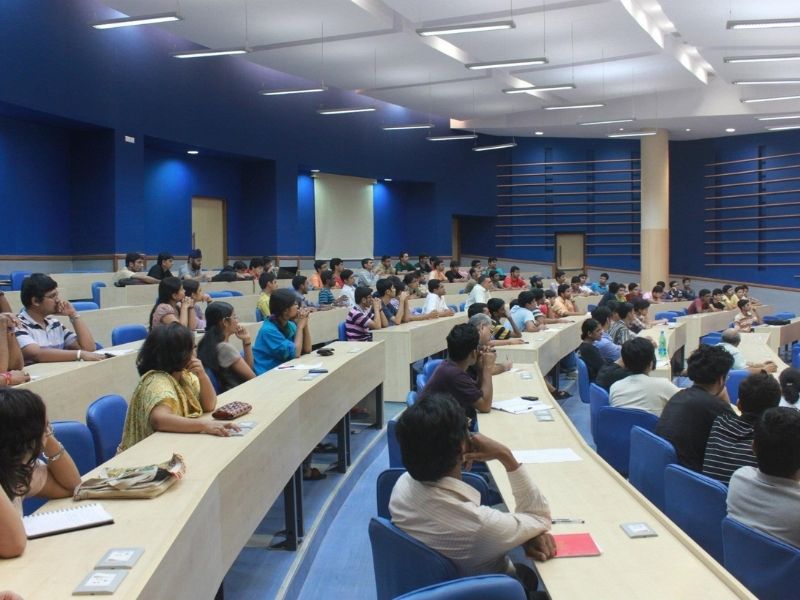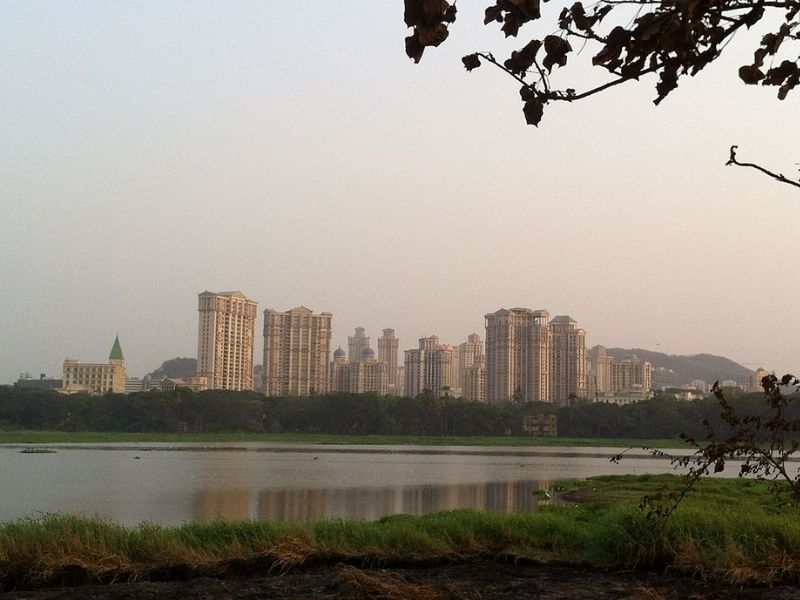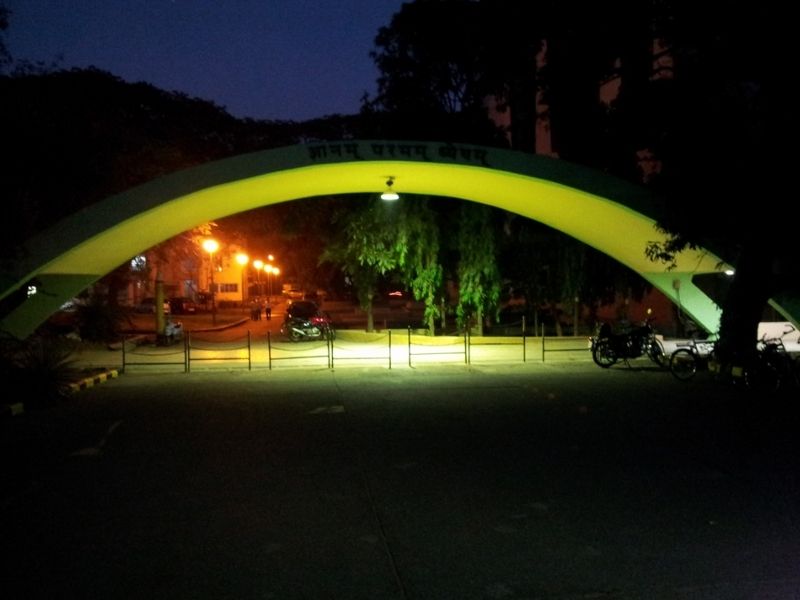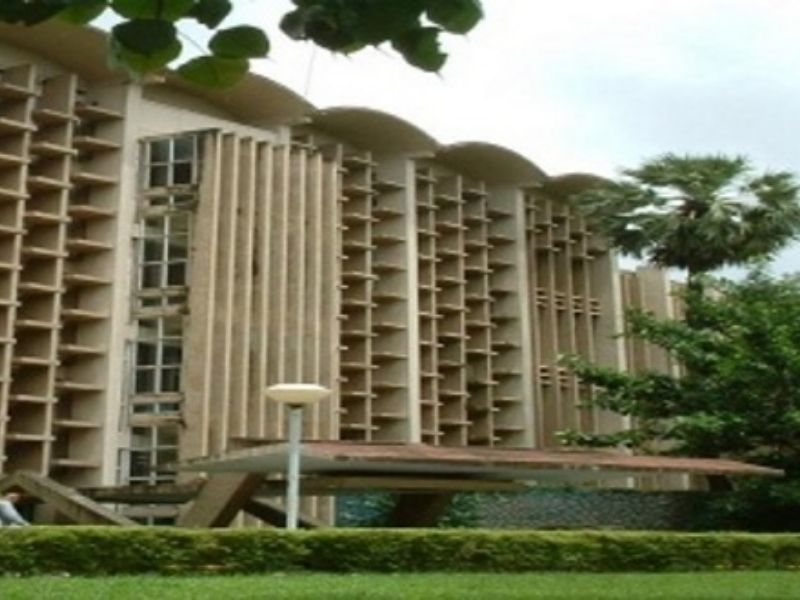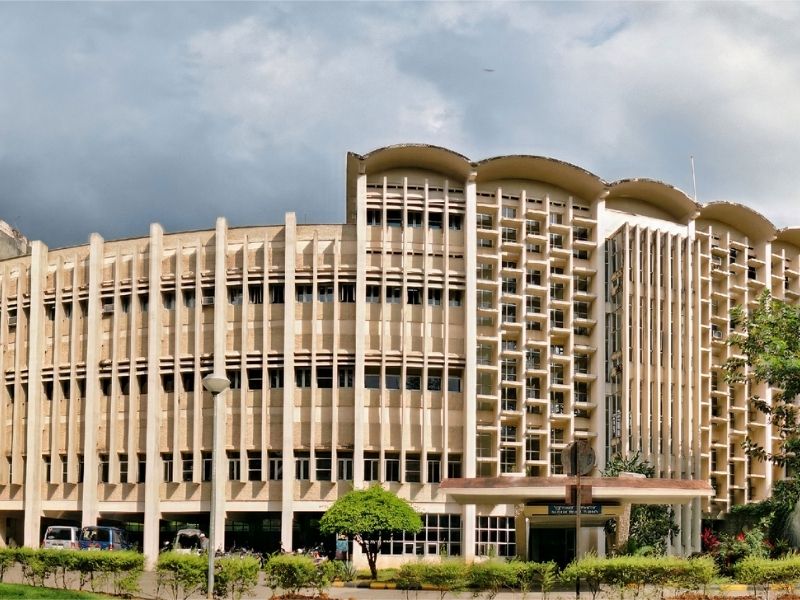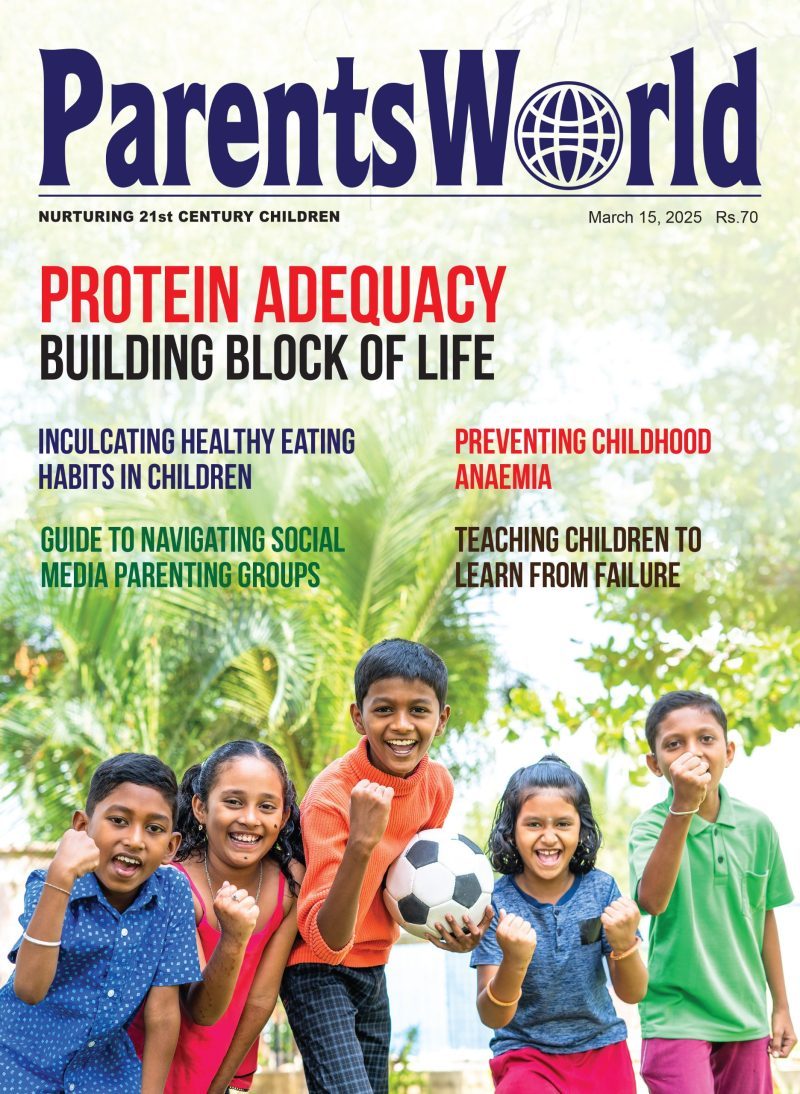
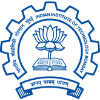
Established
1958Streams
Artificial Intelligence, Arts, Computer Application, Engineering, Management, MBA, ScienceOwnership
GovernmentStatus
College Type
Postgraduate, UndergraduateOverview
Indian Institute of Technology, Bombay (IITB) is a public technical university and research institute in Powai, Mumbai. Established in 1958, the second of its kind, IIT Bombay was the first to be set up with foreign assistance. In 1961, the Parliament decreed the IITs as “Institutes of National Importance”. Since then, IITB has grown from strength to strength to emerge as one of the top technical universities in the world.
Since its establishment in Powai, the institute has physically expanded to include more than 584 major buildings with a combined area of more than 2.2 square kilometers.
IITB is known for its four-year, five-year and two-year programmes and is recognised worldwide as a leader in the field of engineering education and research. Reputed for the outstanding calibre of students graduating from its undergraduate and postgraduate programmes, the institute attracts the best students from the country for its bachelor’s, master’s and doctoral programmes. It currently has a total of 15 academic departments, 20 centres, a school of excellence and four interdisciplinary programs including a Management Program. A total of over 10,000 students are a part of IITB with a faculty strength of 603.
Over the years, the institute has created a niche for its innovative short-term courses through continuing education and distance education programmes. Members of the faculty of the institute have won many prestigious awards and recognitions, including the Shanti Swaroop Bhatnagar and Padma awards.
Campus
The IITB campus spans over 550 acres in Powai, East Mumbai. Being close to the Sanjay Gandhi National Park, the campus has a significantly green cover away from city pollution and often sees wild animals stray into campus. Divided into clusters of buildings, the campus’ academic area comprises the main building, various departmental annexes and auditoria. All department annexes are connected by a corridor named Infinite Corridor. Beyond the Convocation Hall lie most of the hostels. There are a total of 18 hostels with in-house dining, of which two hostels (Hostels 10 and 11) and a wing of the newly constructed hostel (Hostel 15) are for female students.
Sports facilities on campus include two swimming pools and courts and grounds for football, hockey, cricket, tennis, basketball, squash and volleyball. It also has a Students’ Activity Center (SAC) for various cultural and other extracurricular activities. In addition to these facilities, the campus also houses two high schools, one of which is a Kendriya Vidyalaya and the other is called IIT Campus School.
Academics
Departments:
Aerospace Engineering
Biosciences and Bioengineering
Chemical Engineering
Chemistry
Civil Engineering
Computer Science & Engineering
Earth Sciences
Electrical Engineering
Energy Science and Engineering
Environmental Science and Engineering (ESED)
Humanities & Social Sciences
IDC School of Design
Mathematics
Mechanical Engineering
Metallurgical Engineering & Materials Science
Physics
Undergraduate Courses:
B.Tech.
Integrated B.Tech. and M.Tech.
B.Sc.
B.S.
B.Des.
Postgraduate Courses:
M.Tech.
M.Sc.
M.S.
M.Des.
M.M.S.
M.B.A.
E.M.B.A.
Master of Urban Design
Master of Public Policy (M.P.P.)
Doctoral Programmes:
M.Phil.
Ph.D.
Placements:
The Placement Office (nodal point for placements at IITB) or the Placement Cell (a body of student representatives) sends invitations to companies/organizations along with relevant information to conduct campus interviews for their requirements. The placement cell aims to prepare students to be industry-ready and train them to handle responsibilities of the job market, corporate world and private sector via activities, bootcamps, student mentors and club collaborations.
The placement procedure at IITB is as follows:
- The placement cell sends invitations to companies/organizations along with relevant information to conduct campus interviews for their requirements.
- Recruiters use the job announcement form to inform eligible students about the job specifications and details.
- Qualifying students appear for the recruitment process, among whom candidates shortlisted according to their profiles have to appear for the IIT Bombay Nishi aptitude test known as PCA for or testing critical and problem-solving skills.
- Interviews are conducted in December. Final recruitment is confirmed to students via the placement office by giving them offer letters.
2020 placement highlights: The placement percentage for 2020 stood at 83.58% overall, while a total of 1207 offers were made, of which 159 were international offers. 313 companies participated in the recruitment process, of which top companies included TCS, Google, Amazon, Microsoft and Facebook. With a total of 1444 participating students, the average CTC stood at INR 20.08 LPA. The highest domestic CTC was recorded at INR 62.28 LPA and the highest international CTC at INR 1.16 CPA.
General Information
 Accomodation
AccomodationYes
 Library
LibraryYes
 Student Mix
Student MixMen and women
 No of Students
No of Students10,079
 Campus Size
Campus Size550 acres
 Labs
LabsYes
 Internet Wi-Fi
Internet Wi-FiYes
 Sports
SportsBasketball, Cricket, Football, Gym, Hockey, Tennis
Admission
Undergraduate Admissions- B.Tech., B.Sc.
Selection Criteria: JEE Advanced score/rank.
Eligibility: 10+2 with PCM from a recognised board.
Admission Procedure
- Candidates must register for admissions by filling out the online application form on IITB portal with the submission of documents and payment of application fees.
- Candidates have to register and appear for the JEE Advanced exam.
- Upon the declaration of results, candidates will have to register and appear for the JoSAA counselling process where they may choose IIT Bombay as their first preference. Students allocated seats may proceed with the verification of documents and payment of fees to confirm their admission.
Undergraduate Admissions- B.Des.
Selection Criteria: UCEED score.
Eligibility: 10+2 from a recognised board.
Admission Procedure
- Candidates must register for admissions by filling out the online application form on IITB portal with the submission of documents and payment of application fees.
- Candidates have to register and appear for the UCEED exam.
- Upon the declaration of results, candidates will have to register and appear for the UCEED counselling process where they may choose IIT Bombay as their first preference. Students allocated seats may proceed with the verification of documents and payment of fees to confirm their admission.
Postgraduate Admissions- M.Tech.
Selection Criteria: GATE scores and interview.
Eligibility: B.E./B.Tech. degree in relevant discipline/specialisation from a recognised university with a minimum aggregate of 60% marks.
Admission Procedure
- Candidates must register for admissions by filling out the online application form on IITB portal with the submission of documents and payment of application fees.
- Candidates have to register and appear for the GATE exam. Candidates with B.E./B.Tech. degrees from IITs will be exempt from GATE qualification; they will be admitted under TA/RA positions based on written tests and/or interviews.
- Upon the declaration of results, candidates will have to register and appear for the CCMT counselling process where they may choose IIT Bombay as their first preference. GATE scores will carry 70% weightage while interviews will carry 30% weightage. Students allocated seats may proceed with the verification of documents and payment of fees to confirm their admission.
Postgraduate Admissions- M.Des.
Selection Criteria: CEED scores, IITB-conducted written test and interview.
Eligibility: Bachelor’s degree in relevant discipline/specialisation from a recognised university.
Admission Procedure
- Candidates must register for admissions by filling out the online application form on IITB portal with the submission of documents and payment of application fees.
- Candidates have to register and appear for the CEED exam. This is followed by the university-conducted written test, followed by an interview.
- The university will release a merit list based on the candidate’s CEED scores (70% weightage), written test (15% weightage) and interview (15% weightage). Candidates allocated seats may proceed with the verification of documents and payment of fees to confirm their admission.
Postgraduate Admissions- M.Sc.
Selection Criteria: IIT-JAM score.
Eligibility: Bachelor’s degree in relevant discipline/specialisation from a recognised university with a minimum aggregate of 55% marks.
Admission Procedure
- Candidates must register for admissions by filling out the online application form on IITB portal with the submission of documents and payment of application fees.
- Candidates have to register and appear for the IIT-JAM exam.
- Upon the declaration of results, candidates will have to register and appear for the counselling process where they may choose IIT Bombay as their first preference. Students allocated seats may proceed with the verification of documents and payment of fees to confirm their admission.
Postgraduate Admissions- M.B.A.
Selection Criteria: CAT score and performance in interview.
Eligibility: Bachelor’s degree in relevant discipline/specialisation from a recognised university with a minimum aggregate of 60% marks.
Admission Procedure
- Candidates must register for admissions by filling out the online application form on IITB portal with the submission of documents and payment of application fees.
- Candidates have to register and appear for the CAT exam. Candidates securing the required minimum overall and sectional percentile score will have to appear for the second round of admission comprising a written ability test (WAT) and/or personal interview (PI).
- The university will declare a merit list based on the candidate’s CAT overall percentile, WAT/PI scores and their personal profile. Students allocated seats may proceed with the verification of documents and payment of fees to confirm their admission.
Postgraduate Admissions- E.M.B.A.
Selection Criteria: Academic merit and interview.
Eligibility: Bachelor’s degree in relevant discipline/specialisation from a recognised university with a minimum aggregate of 60% marks and over seven years’ work experience.
Admission Procedure
- Candidates must register for admissions by filling out the online application form on IITB portal with the submission of documents and payment of application fees.
- Candidates have to appear for the TOEFL/IELTS exams and the interview round.
- Candidates will be shortlisted on the basis of their academic merit, work experience, proficiency in English, TOEFL/IELTS scores, performance in interview and quality of student application/profile. Students allocated seats may proceed with the verification of documents and payment of fees to confirm their admission.
Doctoral Admissions- M.Phil.
Selection Criteria: MET scores and performance in written test and interview.
Eligibility: Degree in relevant discipline/specialisation from a recognised university with a minimum aggregate of 55-60% marks.
Admission Procedure
- Candidates must register for admissions by filling out the online application form on IITB portal with the submission of documents and payment of application fees.
- Candidates have to register and appear for the MET exam. This is followed by a written test, qualifying which candidates have to appear for an interview.
- The university will declare a merit list based on the candidate’s MET score and performance in written test and interview. Students allocated seats may proceed with the verification of documents and payment of fees to confirm their admission.
Doctoral Admissions- Ph.D.
Selection Criteria: GATE/CEED scores and performance in written test and interview.
Eligibility: Degree in relevant discipline/specialisation from a recognised university with a minimum aggregate of 55-60% marks.
Admission Procedure
- Candidates must register for admissions by filling out the online application form on IITB portal with the submission of documents and payment of application fees.
- Candidates have to register and appear for the GATE/CEED exam. This is followed by a written test and interview. Candidates also have to have any one of the fellowships CSIR JRF/ UGC/ NBHM/ DBT/ ICAR/ ICMR/ ICPR or DST INSPIRE, or a minimum of two years work experience.
- The university will declare a merit list based on the candidate’s GATE/CEED score, performance in written test and interview and work experience/student profile. Students allocated seats may proceed with the verification of documents and payment of fees to confirm their admission.
Fees: Please contact the university for detailed information on the fee structure.
Achievement
IIT Bombay was ranked 34th among the top 200 Universities in Asia by the QS Asia Ranking 2020
IITB ranked eighth among the universities in BRICS countries by the QS BRICS Ranking 2019 and 172nd in QS World University Rankings in 2021.
The Times Higher Education World University Rankings ranked IITB 401-500 globally in the 2020 ranking 69 in Asia in 2020 and 34 among Emerging Economies University Rankings 2020.
In India, IIT Bombay was ranked third among engineering colleges in 2019 by Outlook India and second among engineering colleges in 2019 by The Week. The National Institutional Ranking Framework (NIRF) ranked it third among engineering colleges in 2020 and fourth overall. NIRF also ranked it 11th in India in the management ranking. QS Ranking placed IIT Bombay on 51-100 in Arts and Design subject.
Accommodation
IIT Bombay provides accommodation facilities to its resident students. There are a total of 18 hostels, of which two hostels (Hostels 10 and 11) and a wing of the newly constructed hostel (Hostel 15) are for female students.












